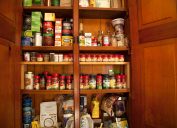You Should Never Store Your Spices Here, Experts Warn
Keeping your spices in this one place could actually damage them.
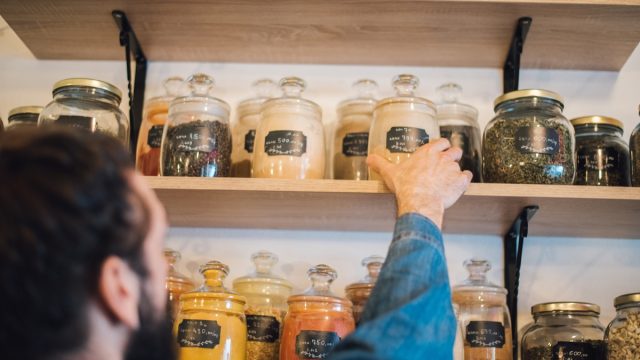
From basics like salt and pepper to flavorful additions like garlic powder and paprika, most people have a rather extensive spice collection sitting around in their kitchen. But whether you're putting your spices away in a cabinet or you're leaving them out on the counter after cooking, the place where you store your spices can make a big difference. According to experts, one storage area in particular will do some real damage. Read on to find out where you should never be keeping your spices.
RELATED: You Should Never Keep This One Spice in Your Cabinet, Experts Warn.
Experts say you should never store your spices near your stove.
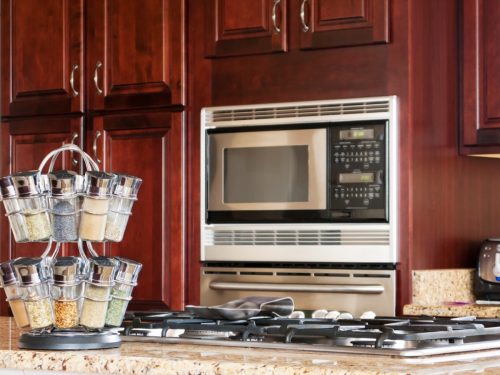
Putting your spices near your stove may seem like a convenient option, making them readily available while you're cooking. But according to Lori Bogedin, a chef and culinary expert from Pennsylvania, storing spices near this kitchen appliance is a bad idea.
"You should never store spices near a stove since the heat might destroy the spices and decrease their flavor," Bogedin explains. "Heat can degrade the different chemicals and the essential oils that give spices their tastes and fragrances. And flavors lose their strength when these chemical components start breaking down."
Nadia Charif, RD, a registered dietitian and health advisor at Coffeeble, also notes that many spices are ground seeds, rather than whole. The fats in these ground seeds can actually go rancid if exposed to heat, she warns.
There are other heat sources in your kitchen you should avoid storing spices near.
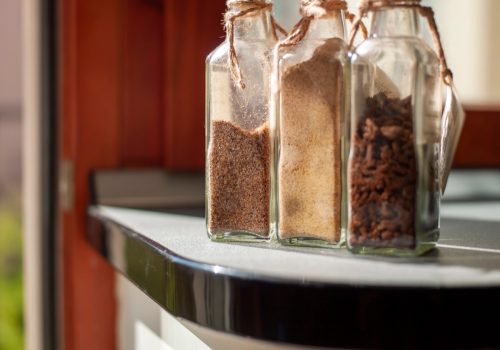
When thinking of the hottest spots in your kitchen, your stove is surely the first thing that springs to mind, but experts say there are a few more sources of heat that you should watch out for when it comes to deciding where to store any seasonings. Thomas McGee, founder and owner of Pinch Spice Market, says you should avoid leaving your spices in areas that get a lot of direct sunlight because of the excessive exposure to heat. And Emily Perez, director of digital PR for Kitchen Infinity, adds, "Dishwashers are another dangerous and less obvious source of heat, so don't store spices near them."
RELATED: For more kitchen advice delivered straight to your inbox, sign up for our daily newsletter.
You may have to throw your spices out if they've been stored near heat.
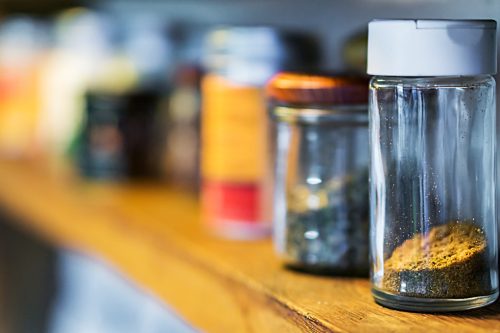
Depending on what containers you're storing your spices in, you might need to discard your seasonings altogether if they've been left near heat for a while. Angelo Larocca, a health specialist and owner of cooking line Orblue, says that plastic spice containers can cause toxins to grow in your spices when exposed to heat. This can result in rancid or even moldy seasonings, which you'll want to toss immediately. But if you store them "in an airtight glass or metal container, spices stored near your stove are still usable, you'll just likely need to utilize more of them in order to get the strength of flavor you are looking for," Larocca explains.
Your spices should be stored in cool, dry areas.
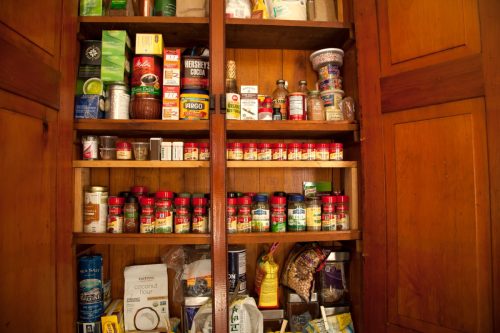
So, where should you store your spices? According to Parvathy Pothan, a home expert and founder of Smart Home Guide, the best spot for your spices is somewhere cool, dry, and dark. This could be a cabinet away from your stove or even your pantry. However, "if you live in a place with a hot and humid climate, then it is better to store spices in the fridge," Pothan says.
Keeping a constant temperature no matter where you store them is important as well, according to Perez. She says that temperature fluctuations can cause condensation, which might eventually result in mold.
RELATED: Never Grill Your Meat or Chicken Like This, USDA Warns.
